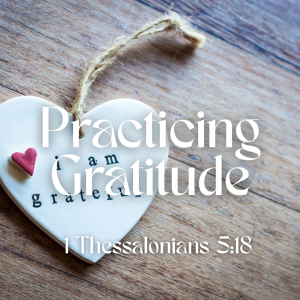
Gratitude doesn’t always come naturally—especially when life is hard. But it’s in those exact moments that thanksgiving becomes most powerful. Think of Paul and Silas in Acts 16. They were beaten, chained, and thrown into prison. Yet, at midnight, they were singing hymns and praying—choosing praise over despair. And what happened? The prison shook, the chains fell off, and lives were changed.
Gratitude has the power to shift atmospheres, not just around us, but within us. It reorients our souls to see what God is doing, instead of what we think He isn’t. When we practice thankfulness regularly, we develop spiritual resilience. We begin to notice the blessings in the ordinary—the laughter of children, the warmth of a meal, the sunrise after a storm.
Practicing gratitude doesn’t mean pretending everything is fine. It means choosing to trust that God is still good and still working—even when life doesn’t feel fair.
No comments yet. Be the first to say something!